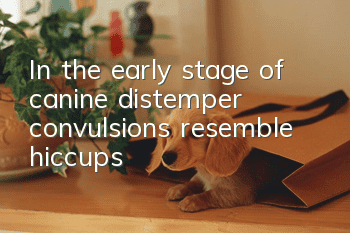What is the best way to treat dog parvovirus?

Symptomatic treatment is provided with anti-inflammatory injections, antiemetic injections, hemostatic injections, antiviral injections, biological agents interferon, parvomonoclonal antibodies, parvoinhibitors, etc. For problems such as dehydration, infusions are also needed to correct electrolyte imbalance, balance acid-base poisoning, and relieve dehydration symptoms. If the dog no longer vomits after treatment, you can take some blood-replenishing drugs orally. During treatment, blood routine should be strictly monitored and the status of white blood cells and neutrophils should be observed.
Causes of parvovirus in dogs
1. Insufficient immunity: When the dog is not immunized or the vaccine is incomplete, it is exposed to Dogs with parvovirus or their excrement, vomitus, and saliva may be infected with parvovirus when their owners return home. At this time, the dog's immunity is insufficient and unable to resist the invasion of parvovirus.
2. Stress triggers microorganisms: Puppies usually have very poor adaptability to the environment. Changes in the environment or sudden stimulation can cause them to have a stress response, making them more susceptible to viruses.
3. Parasites cause parvovirus: Small dogs that have not been dewormed are easily infected by parasites, causing vomiting and diarrhea, resulting in reduced dog resistance and easy infection with parvovirus.
4. Caused by improper diet: For example, feeding the dog milk, chicken bones, oily food, etc. can cause the dog to have diarrhea and become infected with parvovirus.
- Causes of Prostatic Cysts in Dogs | Diagnosis | Prevention and Treatment Methods
- The dog's vaccine has no effect after injection. What is the reason why the dog's vaccine immunity fails?
- What should I do if my dog is infected with intestinal parasites?
- How to treat canine distemper in Chow Chow
- Small grapes, big harm, must not be given to dogs!
- What should I do if my Bichon Frize has a cold? What treatments are available?
- Dogs need protein
- Why do dogs keep scratching their faces?
- What should Alaskan dogs eat? What can't you eat?
- How to choose a healthy Alaskan Malamute



